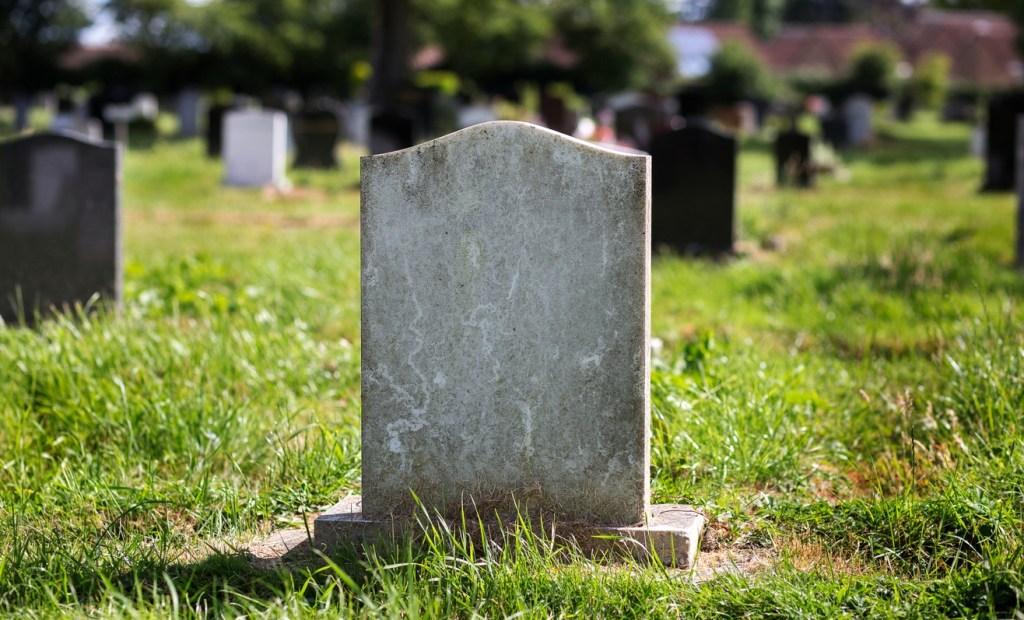Here’s a cheerful thought: we are all going to die. Some of my friends are under 70 but most, now I come to count them, are not. We have had our Biblical allocation of three score years and 10 and then some. So imagine my surprise to discover how unprepared many of my senior crowd are for death. Last Will and Testament not signed, sock drawer not tidied, unfulfilled ambitions regretfully piled up and, frankly, panic.
This is not to minimize the horrors of a coronavirus death. It is, by all accounts, a struggle, literally, to the last breath. But even in healthier times our end days are likely to be attended by distress and indignities. It’s granted to very few of us to fall peacefully and permanently asleep in an armchair after a good lunch with our loved ones.
Sooner or later something gets us, and after a billion beats is it any wonder the heart comes to a full stop? Even a Toyota engine doesn’t last forever.
You might expect those of us who are over the hill to be philosophical about our chances in the current epidemic. That our attitude would be, ‘I’ve seen my grandchildren into the world and generally had a wonderful time, so if this one has my name on it, so be it.’ But no. Several seniors known to me regard this latest threat to their continued existence as an impertinence.
They are the people who say ‘if I die’ not ‘when I die’. And because they are wedded to the idea of their immortality, they leave undone what they ought to have done: mended fences and enjoyed each day as a bonus not an entitlement. It’s a delicate matter to confront a friend’s delusions.
As far as I’m aware, none of my acquaintances has been barmy enough to pony up for cryogenic preservation. I think I’d know. I imagine it’s the kind of thing people get evangelical about, like time-share apartments or pyramid-selling schemes. Therefore, absent a fully paid-up cryogenics plan, why are so many over-70s outraged at the prospect of death? It’s not as though we’re going to die tragically young. That possibility expired some time ago.
Agreed, we still have a contribution to make to society. We may have practical skills to pass on, things like map-reading or calculating an acceptable tip to leave in a New York restaurant. But if we’re going to do these things, we should really get a move on because we know not the hour.
We may also have entertainment value, but the world will manage perfectly well without our reminiscences or impersonations. They are a side-dish, welcome if offered, but not essential. It’s better that we understand that.
I’ve been wondering if it’s a post-war boomer generation thing, this not being able to countenance a world without us. The Who sang, ‘hope I die before I get old’ but most of them didn’t. Unlike our parents we’ve lived our lives mainly in times of peace and prosperity and been free to do our own thing. It’s just that dying doesn’t seem to be our thing.
I can understand my grandchildren’s generation having a problem with death. They never see dead people laid out in a shroud on the kitchen table. They also play computer games in which people jump up, good as new, no matter how comprehensively they’ve been splattered with a ray gun. I guess it takes a deceased hamster to bring home the grim truth.
Preparedness for death is as much about practicalities as it is about psychology. Shockingly half of people in the UK die intestate, which means the first legacy their loved ones receive is an unholy mess of paperwork. I know, because my father and my first husband both died without leaving a will.
Do people procrastinate because they regard death as optional extra, like an add-on excursion to a holiday package? Do they think they have nothing to leave? But everyone has something to leave, even if it’s only their collection of beer mats. Or do they fear that by writing a will they make their departure more imminent? As anyone who has written a will or an end-of-life directive could tell them, when you’ve done it you feel better, not worse.
The pandemic has divided my senior friends into two distinct camps. There are those who cower in their bunker, screaming at anyone who touches a door handle and checking the rolling death toll updates every half hour, and there are those who are hoping for the best but are quite prepared for the worst. No prizes for guessing who’s having more fun.
In the 1980s there was a musical called Fame, in which someone sang, ‘Hey, I’m gonna live forever.’ No, sorry dear. You’re not.
This article was originally published on The Spectator’s UK website.


















